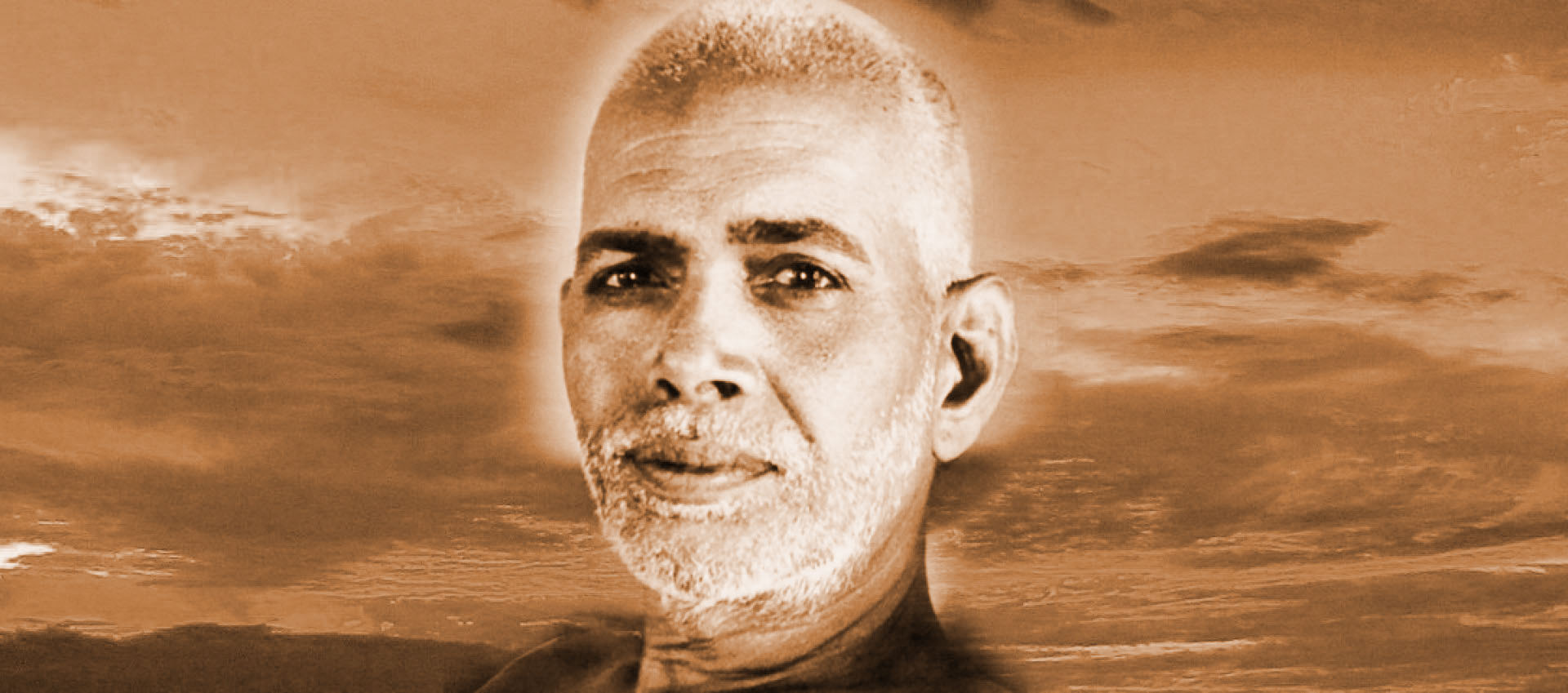
Bhagavad Geeta – Introduction
The Bhagavad Geeta is a bouquet composed of the beautiful flowers of spiritual truths collected from the Upanishads.
Swami Vivekananda
The Grand Epic Mahabharata is basically GOOD against EVIL. In the end, GOOD alone prevails. The Author of this great Scripture is Sage Veda Vyaasa.
King Dhritarashtra and King Pandu are brothers. The Pandavas are the children of Pandu. They are Good Kings; they are five brothers: Yudhistra, Bheema, Arjuna, Nakula and Sahadeva. The Kauravas are the children of Dhritarashra, who was blind. They are Bad Kings; they are hundred in number starting from Duryodhana. The pomp, wealth and glory of the Pandavas aroused deep jealousy and greed in the mind of Duryodhana, the chief of the Kauravas. The wicked Duryodhana, with the help of his malicious and conniving friends and relatives such as his uncle Sakuni, tricks the Pandavas, illtreats them and sends them away for 12 years of exile to live as ordinary citizens, and one more year incognito. When the exile was over after much hardship and suffering, the Pandavas rightfully claimed for their half of the kingdom and properties. The evil Kauravas refused. Hence originated the Great War between the GOOD and EVIL.
Duryodhana and Arjuna, from the side of the Kauravas and Pandavas respectively, were sent to Dwaraka to seek the help of the Divine Yadava hero, Lord Krishna, in the battle. They both found Krishna resting on a couch in His palace. Duryodhana went in and proudly occupied a seat at the head of the couch while Arjuna humbly stood near the feet of the Lord. The moment Sri Krishna opened His eyes, He naturally saw Arjuna first, and then later Duryodhana sitting on a chair. After enquiry of their welfare and the purpose of their visit, Sri Krishna, according to the prevailing custom, gave the first choice to Arjuna, because of his age, and also because of His sight of Arjuna first.
Krishna asked Arjuna to fulfill his desire by selecting Him unarmed or His powerful army called Narayani Sena. Arjuna, who was a devotee of Sri Krishna, expressed his desire to have the Lord with him, neglecting the powerful Narayani Sena, even though Krishna warned that He would remain a witness, bound by the vow of not participating in battle and not taking up arms. Duryodhana, with great delight, thinking that Arjuna was foolish, expressed his wish for the powerful army to help his side in the battle.
When Krishna asked Arjuna why he chose Him instead of a powerful army, Arjuna said, “O Lord! You have the power to destroy all the forces by a mere sight. Why then should I prefer that worthless army? I have for a long time been cherishing a desire in my heart that you should act as my Charioteer (Divine Guide). Kindly fulfill my desire in this war.”
The Lord, who is ever the most devoted lover of His devotees, accepted his request with pleasure; and thus Krishna became the Charioteer of Arjuna in the battle of the Mahabharata.
After the return of Duryodhana and Arjuna from Dwaraka, Lord Krishna Himself went once to Hastinapura, the land of the Kauravas, as the emissary of the Pandavas and tried to prevent the war. But then, under the guidance of Sakuni, the egoistic Duryodhana refused to agree to the peace mission and tried to imprison Lord Krishna, at which Krishna showed His Supreme Form (Viswarupa). Even the blind Dhritarashtra saw it by the Lord’s Grace. King Dhritarashtra, due to his attachment to his sons, failed to control them, and the Kaurava chief, Duryodhana, with vain hope, decided to meet the powerful Pandavas in war.
When both sides were prepared to commence the battle, the sage Veda Vyasa approached the blind king Dhritarashtra and said, “If you wish to see this terrible carnage with your own eyes I can give you the gift of vision.” The Kaurava king replied, “O Chief of the Brahmarishis! I have no desire to see with my own eyes this slaughter of my family, but I should like to hear all the details of the battle.”
Then the sage conferred the gift of divine vision on Sanjaya, the trusty counsellor of the king, and told the king, “Sanjaya will describe to you all the incidents of the war. Whatever happens in the course of the war, he will directly see, hear or otherwise come to know. Whether an incident takes place before his eyes or behind his back, during the day or during the night, privately or in public, and whether it is reduced to actual action or appears only in thought, it will not remain hidden from his view. He will come to know everything, exactly as it happens. No weapon will touch his body nor will he feel tired.”
After the ten days of continued war between the Pandavas and the Kauravas, when the great warrior Bhishma was thrown down from his chariot by Arjuna, Sanjaya announces the news to Dhritarashtra. In agony the king asks Sanjaya to narrate the full details of the previous ten days war, from the very beginning, in all detail as it happened.
Here commences the Bhagavad Geeta.
In a nutshell, Bhagavad Geeta starts when King Arjuna becomes despondent when he sees that he has to fight his own relatives, uncles, cousins etc. in the war. He puts down his Great Bow and Arrows on the ground, and becomes, grief-stricken, confused and deluded. Then the Grand Lord Krishna, the Divine Incarnation of the Supreme, All-Pervading Self, teaches Arjuna how to live a proper life as a Warrior and face the Conficts of Life with success.
In truth, each and everyone of us, is an Arjuna every day. We have conflicting thoughts, we are confused about what to do in difficult sitations, we are not sure about what is right and what is wrong etc. Lord Krishna, by way of guiding King Arjuna, is actually giving us all great knowledge about Life, and guidance about Living our lives righteously, happily and unperturbed, without being agitated and worried about the results. This great Scripture, The Bhagavad Geeta, is a Must for everyone who is genuinely seeking help about how to lead a full, healthy and happy life.
Vasundhara

